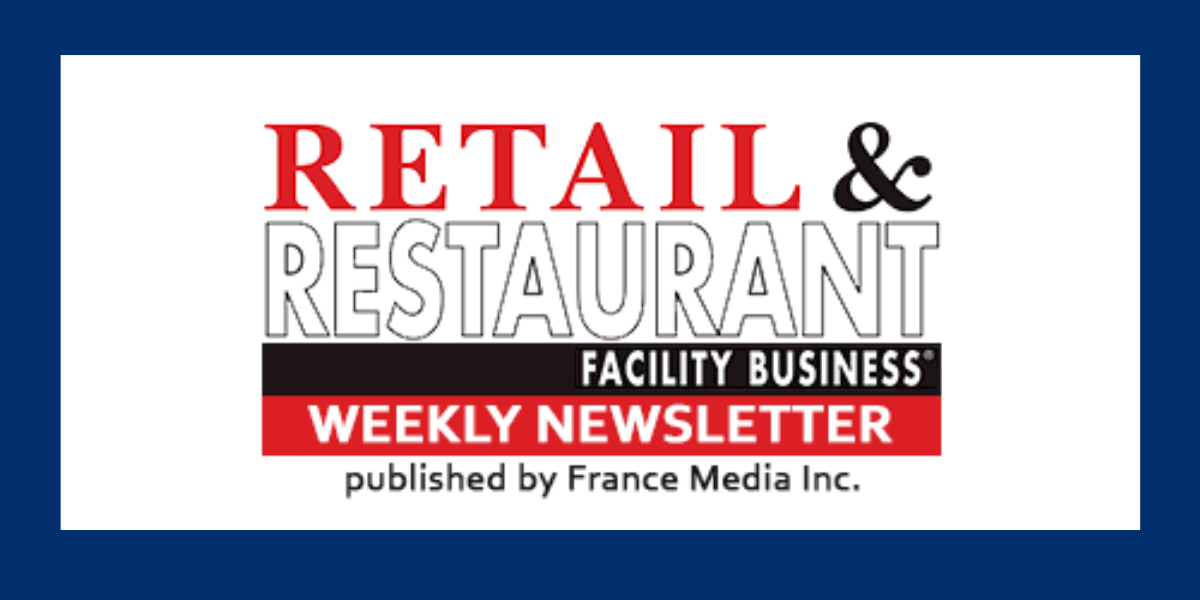
APEX Featured in Retail & Restaurant Facility Business Weekly Newsletter
Thomas Holland, CEO of APEX Surface Care, wrote the following article that was published in the 8/12/2020 edition of the Retail & Restaurant Facility Business Weekly Newsletter.
Beware the Pandemic Profiteer
When you need disinfection and you need it fast, you have to be careful.
As restaurants, retailers and other businesses reopen across the country, they are doing everything in their power to help keep employees and customers safe. Despite all their planning and preparation, however, when COVID-19 arrives on the scene, the initial reaction is often a frantic phone call to the first company that comes to mind, usually a local janitorial or restoration company.
Unfortunately, some unscrupulous providers are gouging clients in their time of need. One company, desperate for a quick disinfection after an active case of COVID, paid a national restoration company $12,000 to disinfect its 25,000-square-foot building. The facility manager’s relief quickly turned to dismay when he learned that he should have paid closer to $2,000. He was charged six times more than he should’ve been. Generally speaking, the cost of disinfecting should be similar to what you pay for carpet cleaning.
Pricing isn’t the only issue. Many of these new “disinfection experts” never touched an electrostatic sprayer or applied any real quantity of disinfectant before the pandemic began. Inexperienced companies may not be using the right equipment or the right product, and even when they do have the proper tools, they may not be using them correctly. Facility managers looking to find an experienced service provider should ask a few key questions:
What Equipment Do They Use?
Electrostatic spraying is the most efficient and effective way to apply a disinfectant. This method evenly coats surfaces, including hard-to-reach areas or irregularly shaped objects like chairs or items on a table. Regular spraying or fogging only covers what the sprayer is pointing at while electrostatic spraying “wraps” the spray around objects. In addition, electrostatic spraying is safer than other methods. Ultra-low volume foggers, for example, aerosolize the disinfectant, making it airborne and potentially causing respiratory distress in users without proper personal protective equipment. Due to high demand, professional-grade equipment currently is in short supply, causing many inexperienced providers to use equipment purchased at the local hardware store.
What Product Do They Use?
More important than the application method used is the product used. When fighting the coronavirus, providers should only use a product on the EPA’s List N: Disinfectants for Use Against SARS-CoV-2. But just because a product is on List N doesn’t make it safe. In addition, many disinfectants have extremely high or extremely low pH levels, making them harmful to surfaces in the long term. Disinfectants are regulated as pesticides and should be treated as such. The safest disinfectants have a Hazardous Materials Identification System (HMIS) rating of 0.0.0.0, have a near-neutral pH level, and are NSF-certified as food-grade safe.
What Experience Do They Have?
A tool is only as good as its user. It’s important to qualify your provider to make sure its technicians have the necessary experience and expertise. Lack of training can result in inconsistent coverage and damaged surfaces or equipment. Look for providers who are trained and certified in infection prevention through the Academy of Cleaning Excellence (ACE), the Global Biorisk Advisory Council (GBAC) or a similar organization.
For safety and performance reasons, disinfecting is best left to trained professionals. However, that doesn’t mean it can’t be cost-efficient. Ultimately, you want to look for qualified companies that are more interested in building a long-term relationship with you than in getting rich quick.
— Thomas Holland is the CEO of APEX Surface Care, a 23-year-old Certified B Corporation® and national specialty surface care company headquartered in Texas. APEX has provided infection control services for over a decade and across tens of millions of square feet. For more information, call 844-462-7391.